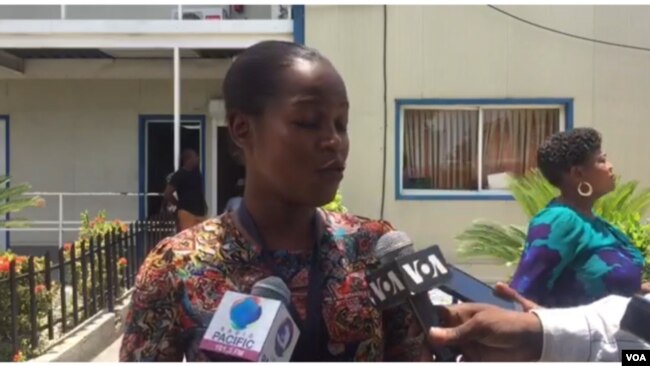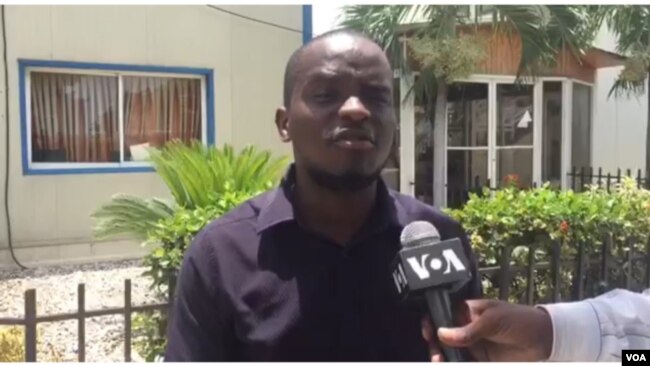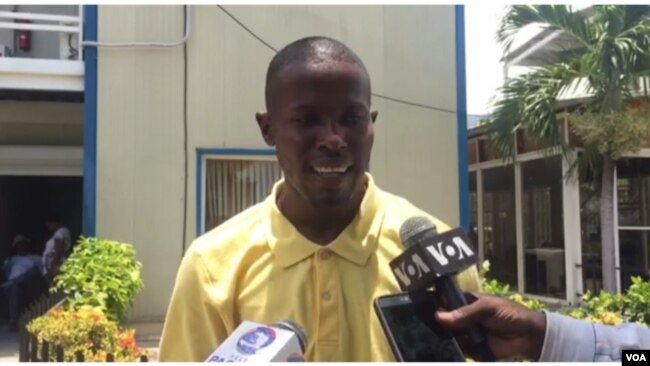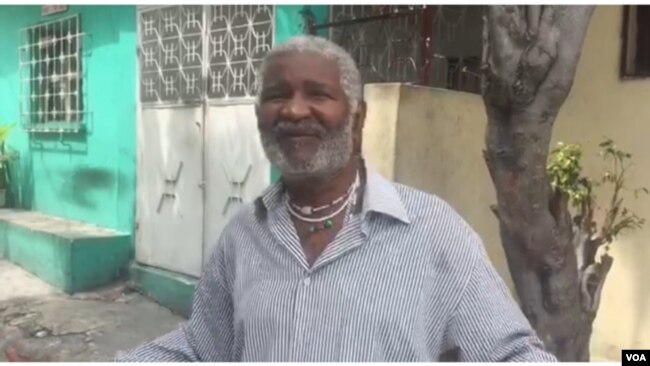Haiti’s social and economic crisis has taken a toll on the country’s journalists. Senator Youri Latortue, a member of the Senate Ethics Committee of Parliament who represents the Artibonite agricultural region, says privately-owned media and the government should work together to allow the press to fulfill its mission without constraints, VOA news reports.
“Compared to how things were under the dictatorships of the past, I think journalists have it easier [today] in terms of being able to say whatever they want to say with regards to the government’s actions. But there is also a grave danger,” the senator told VOA Creole.
Latortue says journalism as a profession is undervalued and the press is not adequately compensated for its work.
“Today we get the impression that the powers that be are spending money on advertisements, they’re buying the journalists’ words – in the past they’d pressure them into doing their bidding. Today they’re spending money. So I think that if we want to really have press freedom, we must take a hard look at how journalists are living, we have to offer them social benefits, so they can maintain their independence,” he said.
Senator Latortue said the present day situation is “as bad as it was in the past” when journalists were systematically repressed under the Duvalier dictatorship.
Money talks
Journalists VOA Creole spoke to in Port-au-Prince echoed the senator’s concerns.
“The media depends on advertisements to make a living, which is a huge limitation because there are citizens, there are institutions that are off limits to you because it could be your boss or even if it’s not your boss – you can’t say anything about it,” Edlene Vernal, who works for Radio Pacific told VOA Creole.
She added that often reporters can’t even do a story on a politician who is supportive of the press because of the possible pitfalls.
“So you can’t talk about him, you have to be complimentary because he is considered to be ‘useful’ to the institution you are working for,” she said.
Luckson Saint-Vil, a reporter for Radio Metropole said the job becomes even more difficult if you want to report on corruption.
“Working conditions are very difficult for journalists in Haiti,” Saint-Vil told VOA Creole. “That’s why some journalists end up getting mixed up with corruption, accepting bribes and also its why they are not free to report on what they think, what they’ve seen, what they know.”
Access to information, disrespect
Another obstacle is access to information.
“When you go out to report a story, it can be hard to find all the information you need. This reminds me of our colleague Vladjimir Legagneur who went out to Grand Ravine [a gang plagued neighborhood of the capital] to gather information for a story he was working on and never returned [home].” Saint-Vil said.
“How we’re treated is another issue,” reporter Romanes Samedi of Radio Mega said. “At our place of work we have no [institutional] support. We have no guarantees that when we go out into situations where we could be killed or injured that we’ll be adequately compensated.”
Training, work standards
“We don’t have adequate training either so we don’t know how to report certain things,” Radio Pacific reporter Vernal said. “So we’re left to speculate, make mistakes over and over again until we finally get it right. So when you’re working in such conditions you can’t really say you’re a journalist because there is no set standard to follow.”
Haiti ranks 62nd on Reporters Without Borders’ 2019 World Press Freedom Index. Jamaica is the highest ranking Caribbean nation this year – listed at number 8 out of 180 countries. Haiti’s ranking is lower this year than last due to the issues outlined in this story. In addition, Reporters Without Borders says natural disasters have also had a negative effect on broadcasters and their journalists.
Advice from a veteran
Overall, veteran journalist and comedian Anthony Pascal, known by his fans as “Konpe Filo” says things have improved.
“Ten – 15 years ago, press freedom meant you could insult people – they’d insult your mother – we were all in the same boat, we didn’t know what it [press freedom] meant – we would watch over each other. There were people who would keep an eye out, when you wrote something, because you could wind up dead. It wasn’t a question of free press – you could die,” he said.
Konpe Filo cited the names of several former colleagues who were killed on the job and added “you couldn’t say anything you wanted to say, you had to measure your words and keep working.”
Praise vs. reality
Haitian President Jovenel Moise tweeted a congratulatory message to local journalists Friday morning.
Je salue le travail de la presse à l’occasion de la journée mondiale de la Liberté de la Presse ce 3 mai. J’exhorte les travailleurs de la presse à plus de respect des règles d’éthique et à plus de responsabilité dans l’exercice de leur noble mission.
— Président Jovenel Moïse (@moisejovenel) 3 мая 2019 г.
“I congratulate the work of the press on international Press Freedom Day today, May 3. I urge members of the press corps to respect the rules of ethics and to be more responsible while fulfilling their noble mission.”
The U.S. Embassy in Haiti also tweeted a message to reporters today about the important role they play.
“A free press is a key element of any true democracy. As members of the press, you all have a critical role to play in making Haiti’s democracy work. It is an incredible responsibility and one that should make you proud.” – #AmbSison
Full speech here: https://t.co/KX1WAsPrv6 pic.twitter.com/HfB5Zhua0C— U.S. Embassy Haiti (@USEmbassyHaiti) 2 мая 2019 г.
“A free press is a key element of any true democracy. As members of the press, you all have a critical role to play in making Haiti’s democracy work. It is an incredible responsibility and one that should make you proud.” Ambassador Michele Sison said.
But the sobering reality for journalists VOA Creole spoke to is that for them, the concept of press freedom is still a dream.




